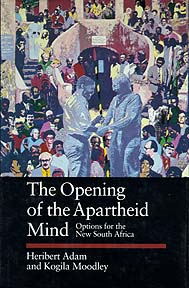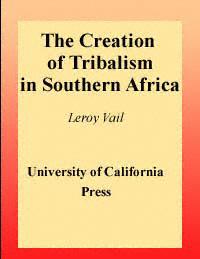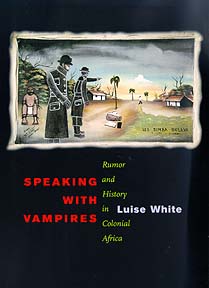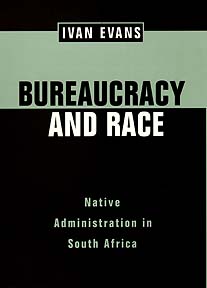formerly eScholarship Editions


|
|
|
|
Your search for
"African History"
in subject
and
Public
in rights
found 9 book(s). | Modify Search | Displaying 1 - 9 of 9 book(s) | |
| 1. |  | Title: The black homelands of South Africa: the political and economic development of Bophuthatswana and KwaZulu Author: Butler, Jeffrey Published: University of California Press, 1978 Subjects: African Studies | African History | Politics Similar Items |
| 2. |  | Title: The opening of the Apartheid mind: options for the new South Africa Author: Adam, Heribert Published: University of California Press, 1993 Subjects: African Studies | Politics | African History Publisher's Description: Refusing to be governed by what is fashionable or inoffensive, Heribert Adam and Kogila Moodley frankly address the passions and rationalities that drive politics in post-apartheid South Africa. They argue that the country's quest for democracy is widely misunderstood and that public opinion abroad relies on stereotypes of violent tribalism and false colonial analogies.Adam and Moodley criticize the personality cult surrounding Nelson Mandela and the accolades accorded F. W. de Klerk. They reject the black-versus-white conflict and substitute sober analysis and strategic pragmatism for the moral outrage that typifies so much writing about South Africa. Believing that the best expression of solidarity emanates from sympathetic but candid criticism, they pose challenging questions for the African National Congress and Nelson Mandela. They give in-depth coverage to political violence, the ANC-South African Communist Party alliance, Inkatha, and other controversial topics as well.The authors do not propose a solution that will guarantee a genuinely democratic South Africa. What they offer is an understanding of the country's social conditions and political constraints, and they sketch options for both a new South Africa and a new post-Cold War foreign policy for the whole of southern Africa. The importance of this book is as immediate as today's headlines. [brief] Similar Items |
| 3. |  | Title: When we began there were witchmen: an oral history from Mount Kenya Author: Fadiman, Jeffrey Published: University of California Press, 1994 Subjects: History | Anthropology | African Studies | African History Publisher's Description: This is the history of the Meru people of Mount Kenya, based on their own traditions, from the earliest times through the colonial period. Many of these tales have been ritually passed down through no fewer than nineteen generations; others were remembered by those personally involved. Jeffrey Fadiman gathered them in interviews with more than 100 of the Meru's oldest men and women.The traditions touch on every era of the Meru past. They include narrations, songs, chants, and riddles. They tell of a mysterious origin, past enslavement, despairing flight, mountain warriorhood, British conquest, and the fight for freedom. The Meru elders spoke most often of urogi, or witchcraft, the incantations, rituals, and potions used to deal with the supernatural aspects of Meru life. As their society evolved, so did their urogi , developing a history of its own as practitioners in every generation sought to cope with the challenges of slavery, migration, war, colonialism, and Christianity.Fadiman has crafted the tales into a compelling narrative, passing on in his turn the stories he was given. This is African history from African perspectives that stretch back over 300 years. [brief] Similar Items |
| 4. |  | Title: The Creation of tribalism in Southern Africa Author: Vail, Leroy Published: University of California Press, 1989 Subjects: History | African History | African Studies | Ethnic Studies Publisher's Description: Despite a quarter century of "nation building," most African states are still driven by ethnic particularism - commonly known as "tribalism." The stubborn persistence of tribal ideologies despite the profound changes associated with modernization has puzzled scholars and African leaders alike. The bloody hostilities between the tribally-oriented Zulu Inkhata movement and supporters of the African National Congress are but the most recent example of tribalism's tenacity. The studies in this volume offer a new historical model for the growth and endurance of such ideologies in southern Africa. [brief] Similar Items |
| 5. |  | Title: Speaking with vampires: rumor and history in colonial Africa Author: White, Luise Published: University of California Press, 2000 Subjects: African Studies | African History | African Studies | Cultural Anthropology Publisher's Description: During the colonial period, Africans told each other terrifying rumors that Africans who worked for white colonists captured unwary residents and took their blood. In colonial Tanganyika, for example, Africans were said to be captured by these agents of colonialism and hung upside down, their throats cut so their blood drained into huge buckets. In Kampala, the police were said to abduct Africans and keep them in pits, where their blood was sucked. Luise White presents and interprets vampire stories from East and Central Africa as a way of understanding the world as the storytellers did. Using gossip and rumor as historical sources in their own right, she assesses the place of such evidence, oral and written, in historical reconstruction. White conducted more than 130 interviews for this book and did research in Kenya, Uganda, and Zambia. In addition to presenting powerful, vivid stories that Africans told to describe colonial power, the book presents an original epistemological inquiry into the nature of historical truth and memory, and into their relationship to the writing of history. [brief] Similar Items |
| 6. |  | Title: Crossing the line: a year in the land of apartheid Author: Finnegan, William Published: University of California Press, 1994 Subjects: African Studies | Politics | Social Problems | Autobiography | Education | African History Publisher's Description: William Finnegan's compelling account of a year spent teaching in a colored high school, "across the line," in Cape Town, South Africa brings the irrationality and injustice of apartheid into focus for the American reader. A new preface, written after the author's observation of the historic 1994 el . . . [more] Similar Items |
| 7. |  | Title: Dateline Soweto: travels with black South African reporters Author: Finnegan, William Published: University of California Press, 1995 Subjects: Media Studies | African Studies | Social Problems | Politics | African History Publisher's Description: Dateline Soweto documents the working lives of black South African reporters caught between the mistrust of militant blacks, police harrassment, and white editors who - fearing government disapproval - may not print the stories these reporters risk their lives to get. William Finnegan revisited seve . . . [more] Similar Items |
| 8. |  | Title: Bureaucracy and race: native administration in South Africa Author: Evans, Ivan Thomas 1957- Published: University of California Press, 1997 Subjects: African Studies | African History | Sociology | Postcolonial Studies | Cultural Anthropology Publisher's Description: Bureaucracy and Race overturns the common assumption that apartheid in South Africa was enforced only through terror and coercion. Without understating the role of violent intervention, Ivan Evans shows that apartheid was sustained by a great and ever-swelling bureaucracy. The Department of Native Affairs (DNA), which had dwindled during the last years of the segregation regime, unexpectedly revived and became the arrogant, authoritarian fortress of apartheid after 1948. The DNA was a major player in the prolonged exclusion of Africans from citizenship and the establishment of a racially repressive labor market. Exploring the connections between racial domination and bureaucratic growth in South Africa, Evans points out that the DNA's transformation of oppression into "civil administration" institutionalized and, for whites, legitimized a vast, coercive bureaucratic culture, which ensnared millions of Africans in its workings and corrupted the entire state. Evans focuses on certain features of apartheid - the pass system, the "racialization of space" in urban areas, and the cooptation of African chiefs in the Bantustans - in order to make it clear that the state's relentless administration, not its overtly repressive institutions, was the most distinctive feature of South Africa in the 1950s. All observers of South Africa past and present and of totalitarian states in general will follow with interest the story of how the Department of Native Affairs was crucial in transforming "the idea of apartheid" into a persuasive - and all too durable - practice. [brief] Similar Items |
| 9. |  | Title: Human rights and reform: changing the face of North African politics Author: Waltz, Susan Eileen Published: University of California Press, 1995 Subjects: Politics | History | Middle Eastern Studies | Middle Eastern History | African History | African Studies Publisher's Description: Independence from colonial rule did not usher in the halcyon days many North Africans had hoped for, as the new governments in Morocco, Tunisia, and Algeria soon came to rely on repression to reinforce and maintain power. In response to widespread human rights abuses, individuals across the Maghrib began to form groups in the late 1970s to challenge the political practices and structures in the region, and over time these independent human rights organizations became prominent political actors. The activists behind them are neither saints nor revolutionaries, but political reformers intent on changing political patterns that have impeded democratization.This study, the first systematic comparative analysis of North African politics in more than a decade, explores the ability of society, including Islamist forces, to challenge the powers of states. Locating Maghribi polities within their cultural and historical contexts, Waltz traces state-society relations in the contemporary period. Even as Algeria totters at the brink of civil war and security concerns rise across the region, the human rights groups Susan Waltz examines implicitly challenge the authoritarian basis of political governance. Their efforts have not led to the democratic transition many had hoped, but human rights have become a crucial new element of North African political discourse. [brief] Similar Items |